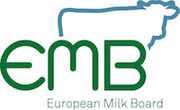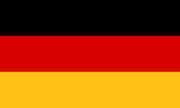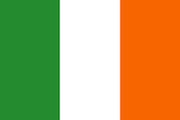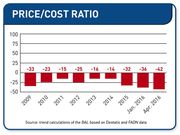EMB Newsletter August 2016
Newsletter as PDF
Contact
EMB - European Milk Board asbl
Rue de la Loi 155
B-1040 Bruxelles
Phone: +32 - 2808 - 1935
Fax: +32 - 2808 - 8265
Dear dairy farmers and interested parties,
As we go deeper and deeper into the crisis, we can see that it is crucial to really do something about the oversupply of milk that is putting so much pressure on the prices.
To those who say that such a policy signifies a lack of confidence in the post-quota EU dairy sector, I would make one simple point: it’s high time that people stopped conflating the interests of the dairy sector and the dairy farmers. The ‘sector’ is doing very well, thank you. We can all read the analysts’ reports and the company accounts. It’s a radically different story for the people actually providing the milk that is the basis for all that profit and optimistic forecasting; those people – at least here in Ireland - have now gone well over a year earning nothing from their work and investment - and in many cases are actually losing money. So as far as ICMSA is concerned, it’s time that we concentrated a little more on the dairy farmers – the foundations of the sector – and perhaps started worrying a little less about the processing, corporate and retail elements. God knows they don’t seem that worried about us.
John Comer, EMB board member and ICMSA president, Ireland
No consequent action to combat the crisis in the dairy sector
New Minister from Rhineland-Palatinate vetoes unanimous resolution of German Ministers in favour of voluntary production cuts
Ireland: ICMSA call for Mercusor and TTIP trade deals to be suspended immediately pending Brexit clarity
Current cost calculations still show disastrous shortfall in cost coverage in milk production
Critique of professors' assessments on the German dairy market
German and African dairy farmers: "You aren't a dairy farmer, you are a milk powder salesman"
Impressum
European Milk Board asbl
Rue de la Loi 155
B-1040 Bruxelles
Phone: +32 2808 1935
Fax: +32 2808 8265
E-Mail: office@europeanmilkboard.org
Website: http://www.europeanmilkboard.org






